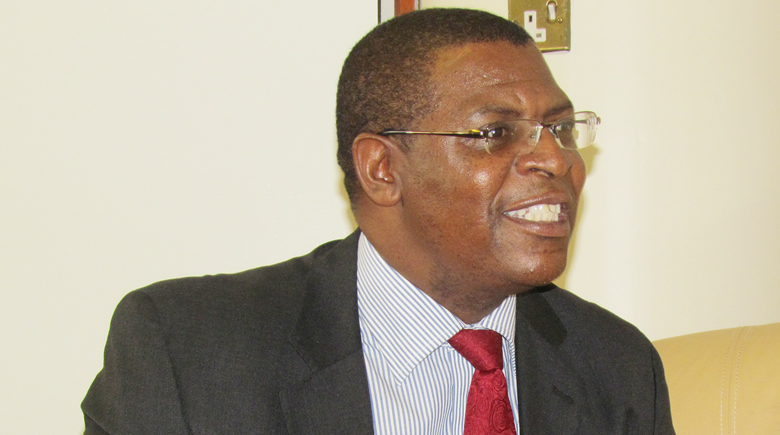Editorial Comment: Love for power would derail proposed coalition

In defeat, MDC leader Professor Welshman Ncube retreated from the public spotlight early August last year when final results of harmonised elections held on July 31 were announced.
His party won a handful of wards but failed to win any directly elected parliamentary seat, only to scrap through with four after the mathematics of proportional representation had been done. He got some 90,000 votes in the presidential race.
Between then and now, at least five seniors have publicly left his party for MDC-T in disillusionment caused by that crashing defeat and what they say is an absence of direction from the top. There is a possibility that hundreds or thousands more in the rank and file have left as well. Prof Ncube kept his silence regardless.
He has resurfaced, nine months later, to dismiss MDC-T leader Morgan Tsvangirai’s suitability as leader of a proposed coalition of opposition parties to challenge Zanu-PF in the 2018 elections.
Prof Ncube recognises the fact that individually, local opposition parties don’t have what it takes to defeat Zanu-PF in any election. He is correct and we agree with him. Having acknowledged the weakness of a divided opposition, he suggests that a coalition of all the political parties has a chance.
“I have no doubt that if we are able to put forward a candidate as opposition,” he told a US-based radio station, “a candidate of a united front, that candidate would win the next election in Zimbabwe.”
We don’t agree with him.
He proceeds to write off Tsvangirai’s capacity to lead that alliance if it ever materialises.
“The identity of that candidate, the name of that candidate matters not. What matters is that that candidate must be an undoubted democrat. I regret to say I do not classify Tsvangirai in that category,” he said.
We agree with him on Tsvangirai.
He goes on to condemn Tsvangirai’s invitation for the opposition to come under a one big tent. “As long as it is a tent which stinks to high heaven with dictatorship, violence, violation of everything that we stood for against Mugabe,” Prof Ncube blasted, “It can be big as you want it . . . it’s not worth the numbers that it has. I have absolutely no respect and I am absolutely not impressed by the big tent politics which has no conception of what the struggle against Mugabe is.”
We agree with him on Tsvangirai.
However, before the opposition can mount a united challenge against Zanu-PF, they have a few challenges to overcome. The first is on reaching a broad consensus on a common, viable candidate; the second is to agree on a message that is not only collective, but more crucially, a winning one.
Prof Ncube is correct in his adverse assessment of Tsvangirai but what alternatives do they have? None in our view.
Many of those building scenarios around the alliance issue, with the exception of Prof Ncube, tacitly want Tsvangirai to lead it. If he doesn’t, will Tsvangirai, who clearly fancies himself as the doyen of opposition politics and its natural leader, be able to subordinate his ambitions to support someone else? He is a power hungry demagogue who does not countenance anyone else apart from him leading whatever coalition is going to emerge. Indeed, his party has significant presence in Parliament and can justifiably step forward, yet that sets himself against Prof Ncube and others.
To his supporters, Prof Ncube has the persona of a clean, sharp politician, with a superior understanding of key issues to Tsvangirai’s. However, his critics say he lacks mass appeal. July 31 rendered his party so small in terms of representation to make a difference. Furthermore, they say the professor tends to drift into abstract, academic matters and does not relate with bread and butter aspects needed to win over the majority vote.
Mavambo/Kusile/Dawn leader Dr Simba Makoni is a joke in those yellow campaign fatigues of his party. He might have the education, but, ironically, that education is his undoing as he tends to be too abstract as well. The elite might vote for him, but they are only a minority.
The jury is still out on another professor, Lovemore Madhuku who recently fell out with Tsvangirai to transform National Constitutional Assembly from a pressure group into a political party. He has time to prove us otherwise, but he tends to share the fatal weaknesses of his professorial colleagues.
There is a small chance they can agree on an unknown, less polarising figure. This, again won’t work.
Talking about the campaign message, it should be easy for the opposition to campaign jointly as they are inherently drifters with no ideology, in the event that they overcome their personal differences to pick a candidate.
But the big question is whether that message would be a winning narrative. The politics of change for its sake, do not sell anymore. Tsvangirai cannot promise democracy which he does not practise in his own party.
In fact, it is the opposition’s universal adversary, Zanu-PF which possesses compelling messages that can and will continue to win a national vote — liberation, democracy and economic empowerment.
As long as the economy remains stable and Zanu-PF fights as one, it is difficult to see an alternative to it, be it a collective or individual effort. July 31 demonstrated this quite well; the revolutionary party garnered more votes than all of its opponents combined.









Comments